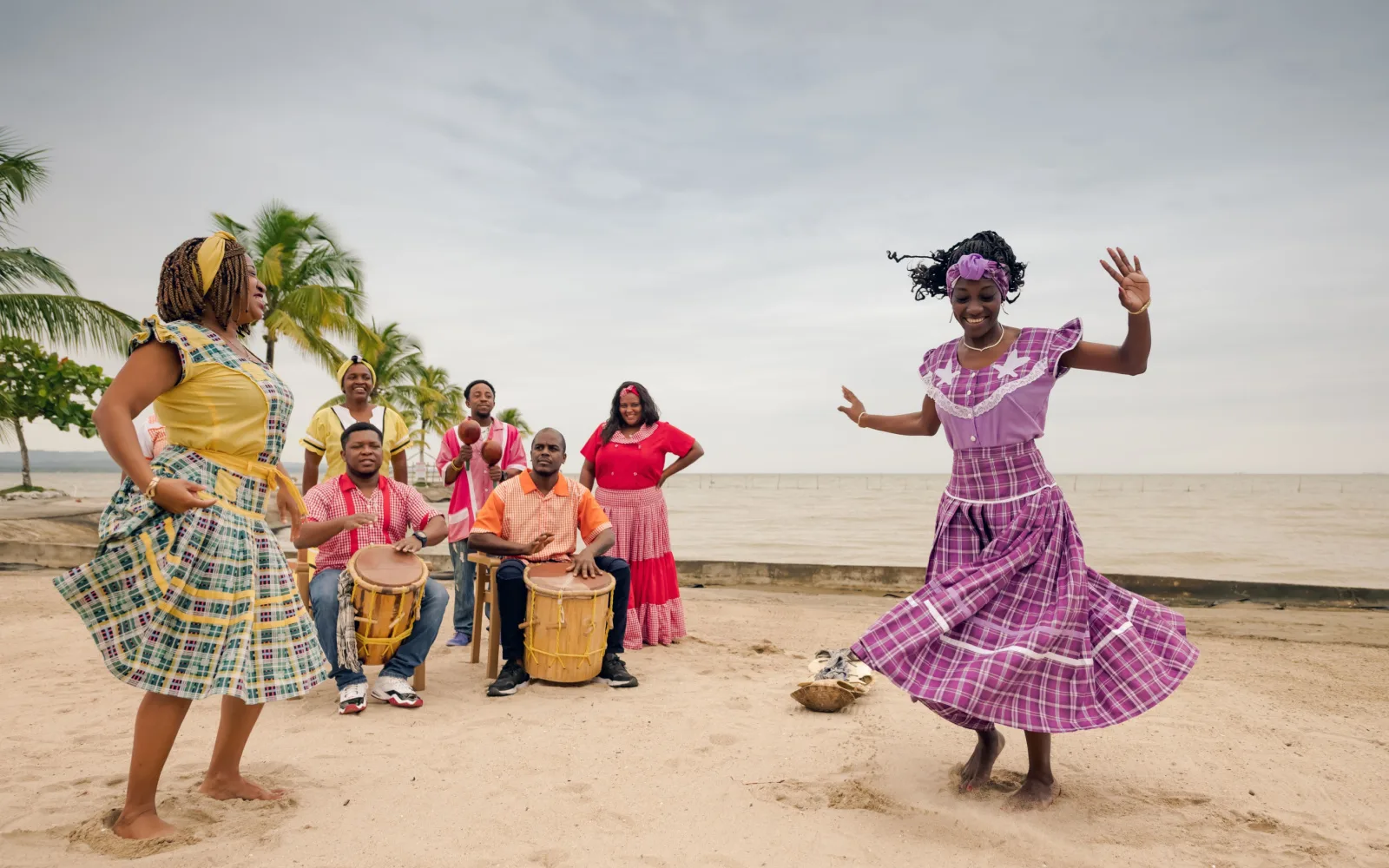What language do they speak in the Bahamas?
In the Bahamas, English is the official language, spoken universally with some variations in spellings and phrases from U.S. English. Additionally, Bahamian Creole, an English-based dialect incorporating elements from various languages, is widely spoken, offering a unique linguistic experience for visitors.
Traveling to another country often means having to pick up at least a few phrases in a new language. One perk when visiting this US neighbor is having a common language, albeit with a few differences.
What Language Do They Speak in the Bahamas?
In the Bahamas, English is the official language and is just about universally spoken. You will notice some differences here and there between English spoken in the Bahamas and US English.
There are a couple of different factors behind this. First, it’s because the official English in the Bahamas is British English. You’ll find it in government, education, business transactions, and on mass media.
Mostly, the differences will show up in spellings (like “programme” vs “program”) and a few turns of phrase. The second factor is Bahamian Creole, which is a dialect used throughout the islands.
The pronunciations and vocabulary are a bit different from US English but easy enough to understand once you have a bit of background in this distinct form of English.
How Did English Become the Official Language of the Bahamas?
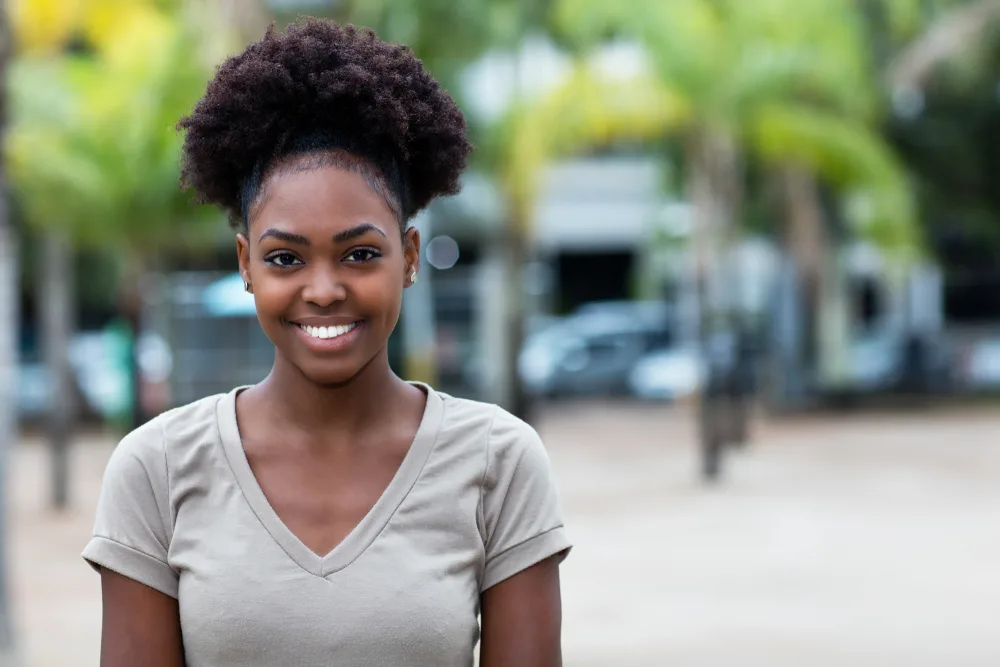
Daniel M Ernst/Shutterstock
The short answer is that English is the official language because the Bahamas were an English colony.
However, there are a few other factors that led to near-universal adoption of English as the country’s language. Christopher Columbus landed in the Bahamas and claimed the islands for Spain.
Spain never created any lasting settlements in the area. In the end, Spain traded the Bahamas to England in exchange for East Florida.
By this time, the indigenous population had been removed from the islands, and the land was subsequently cleared to grow sugarcane. Original Spanish reports on the Bahamas describe it as a lushly forested series of islands.
After being cleared for plantations, the island’s forests were never replanted. The Bahamas you see today is a dramatically different place.
The first British settlers landed on Eleuthera in 1648, bringing with them enslaved West Africans who were brought there to work on sugar plantations.
Because the two populations did not understand one another fluently, they developed a pidgin language to communicate. This language would develop and formalize into Bahamian Creole over time.
Later on, the British colonies expanded to include New Providence, which became the biggest population center and the cultural center of the Bahamas.
Meanwhile, English pirates and privateers began using Nassau and a few other island locations as home ports. These ports were frequented by merchants from Virginia and New England who traded the supplies they needed for pirate plunder.
British authorities eventually reestablished colonial control and arrested or drove out the pirates. During the American Revolution, the Bahamas became a refuge for American Loyalists who fled the newly established United States.
They were mostly plantation owners who brought enslaved West Africans and their descendants with them. The population in the area tripled over a period of a few years.
Meanwhile, the Bahamas remained a British colony. The country achieved full independence as a member of the Commonwealth of Nations on July 10, 1973.
All of these groups spoke English as a common tongue. Each also brought their own distinctive words and phrases along. The result is Bahamian Creole, a modern dialect unique to the Bahamas.
What Is a Creole?
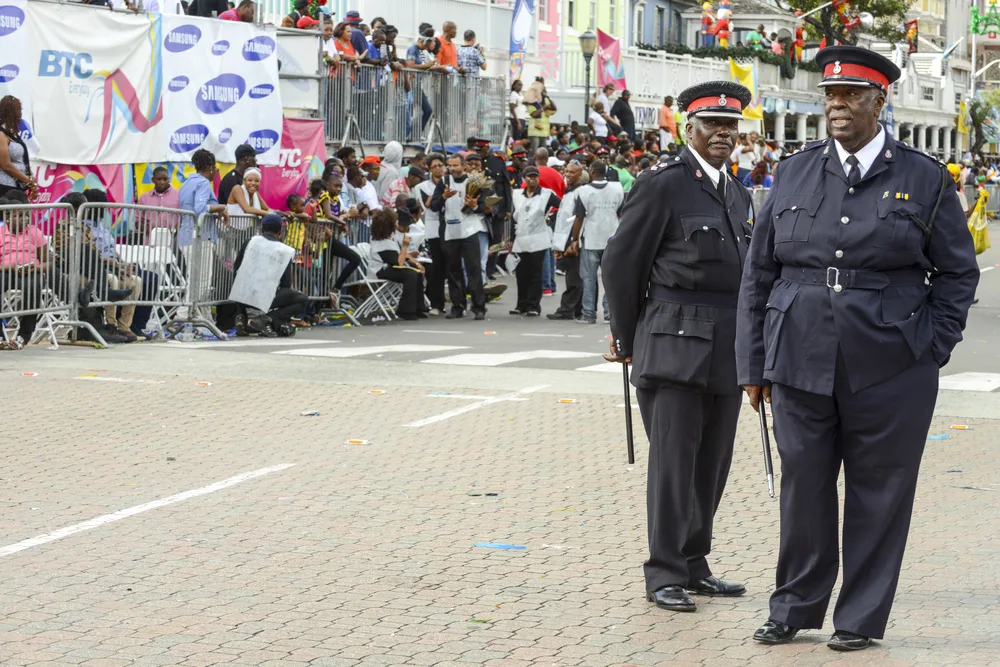
NASSAU, THE BAHAMAS – JANUARY 1: Policemen at Junkanoo Festival on January 1st 2014 in Nassau, the Bahamas/Erkki Tamsalu/Shutterstock
The most commonly spoken language in the Bahamas is Bahamian Creole. It’s the day-to-day language used by about 90% of the people on the islands.
Many people mistakenly think of Creoles as being made up or improper languages. Newer studies of Creoles’ grammar structures and vocabulary show that these are distinct languages with their own rules and conventions.
Creoles are languages that develop over time. Most start with a pidgin, which is a simplified form of language that people who do not speak the same language use to communicate.
Over time, many pidgins become full-fledged languages of their own, using grammar and vocabulary from their parent languages.
Creoles Spoken in the Bahamas
In addition to English, you’ll find that most Bahamians also speak Bahamian Creole, which is also known as Bahamian dialect or Bahamianese.
Bahamian Creole is an English-based Creole. It has elements of African-American Vernacular English (AAVE), English Cockney, Gullah, Scottish, and Bermudian English. You’ll also see it called Bahamianese and Bahamian dialect. Both white and black Bahamians speak it.
In a video challenge where English speakers from elsewhere in the world work to parse Bahamian English, the host, Kris, describes the ways Bahamianese can differ.
Bahamian Creole drops a lot of letters and words for simplicity. So, you’ll hear someone say, “ine right here, everything cool” instead of “I’ve been right here, everything’s cool.”
Haitian Creole is a bit more challenging for a native US English speaker. It’s a French-based Creole spoken by about a quarter of the population in the Bahamas.
In fact, it’s the world’s most widely-spoken Creole, and even shows up on street signs in multicultural cities like Miami. About 90% of the vocabulary is from French, but the grammar is rooted in West African languages.
Things to Consider: Bahamian Phrases and Slang
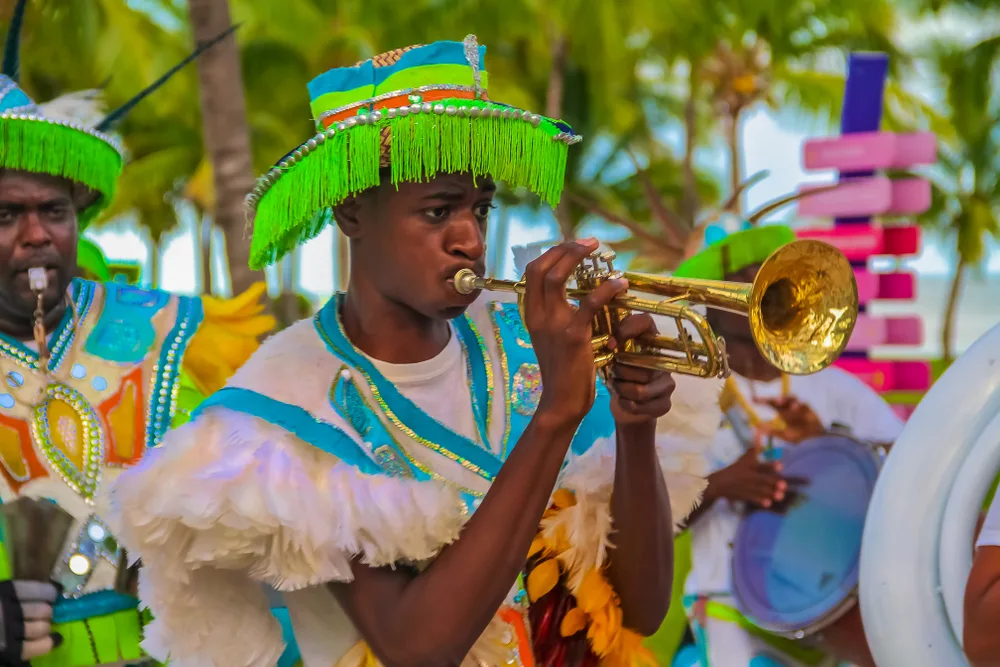
Freeport Bahamas – September 22, 2011: Male dancers dressed in traditional costumes performing at a Junkanoo festival playing a trumpet in Freeport, Bahamas/SvetlanaSF/Shutterstock
As a visitor, you’ll hear turns of phrase that aren’t familiar to you. Here are a few common ones:
- Jam up: crowded or busy. A restaurant, beach, or another location can get “jam up” when there are more people than normal.
- Bornday: birthday. (Not common, used in a joking manner.)
- Potcake: stray dogs; so-named for the “potcake” of peas and rice they’re often fed.
- Current: electricity. If someone’s power is off, they might say “my current’s down.”
- Tingum: thing. Used the same way Americans will use “thingamajig” or “thingie” when they can’t think of the right word.
- Sip sip: gossip. This one comes from gossiping over a couple of drinks.
Heard a turn of phrase that isn’t on this list? There are a few guides to local lingo on YouTube that can help. When all else fails, you can try Urban Dictionary. Beware, though, UD is not the most genteel spot on the web.
Frequently Asked Questions
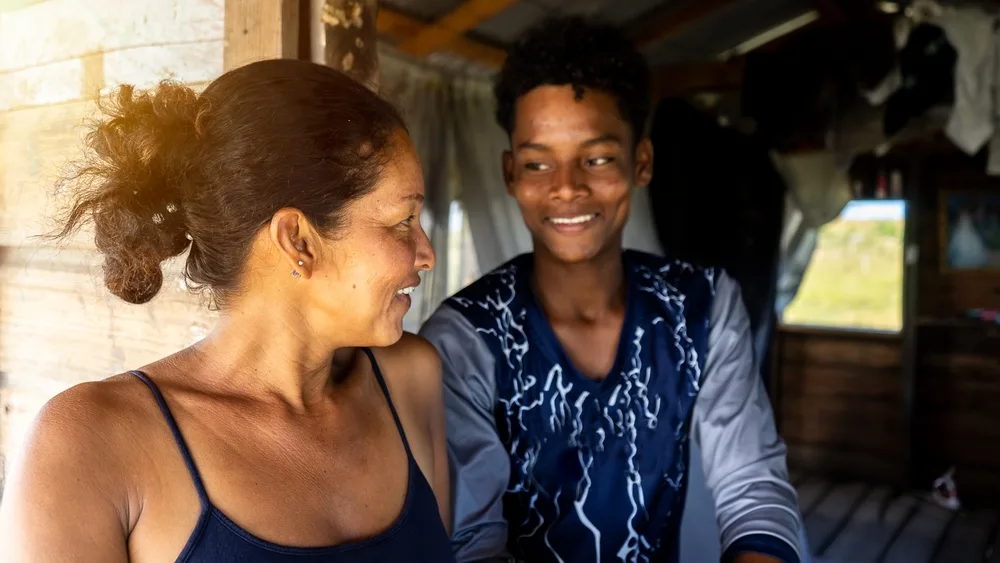
cfalvarez/Shutterstock
Still have some questions about the languages spoken in the Bahamas? These are some of the questions people most frequently have:
What are the top 3 languages spoken in the Bahamas?
The country’s official language is English. Most people speak Bahamian English in their personal lives. There is also a large group of Haitian immigrants and their descendants who speak Haitian Creole.
Is Bahamian Creole English?
Bahamian Creole is a dialect of English. It includes vocabulary from a number of languages and dialects, paired with grammar rules from its parent languages.
How do Bahamians say hello?
Bahamians are a bit more formal than people from other Caribbean islands. A handshake paired with a smile and direct eye contact is the usual greeting.
Will I be able to understand locals in the Bahamas?
Absolutely. British-style English is taught in schools and people working in tourism will use this in formal and professional settings.
So, What Language Do They Speak in the Bahamas?
The vast majority of people you encounter will speak English. In more formal settings, you’ll hear almost exclusively British English.
In less formal ones, you’ll hear Bahamianese/Bahamian Creole, which is mutually intelligible with standard English. You may have a little trouble understanding a few specific words and phrases, but you should generally be able to get by.
Take the opportunity to steep yourself in a dialect specific to the islands. You’ll come home with a greater understanding of this unique and beautiful place. Happy travels!



